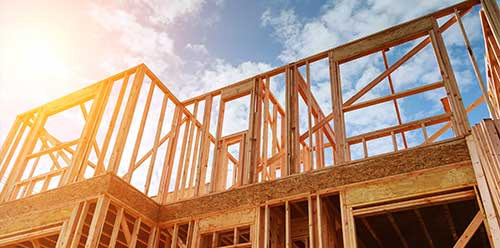Construction is a litigious industry. There are many factors for why that is – but typically, it all comes back to basics: construction operations are complex, they interface with various moving parts, and the value of the projects is significant – whilst the parties take a relatively low profit margin. This is a melting pot for disputes.
The COVID-19 pandemic has been exceptional in that more parties seem willing to collaborate and problem solve to avoid disputes. But the fallout from COVID-19 will mean that some projects will not be delivered on time or on budget – and this extends to future works.
The industry is bracing itself for a number of challenges, including increased delivery times and material shortages; continued employee absence (as construction workers have had to take time off to self-isolate, recover from sickness, and in some cases, be repatriated); additional preliminary costs (including additional site setup measures for COVID-19 mitigation strategies); fluctuating material prices, and tighter client budgets and financial forecasting and controls.
So, it’s very likely that there will be an increased flurry of construction disputes. The question is: how can we best resolve them?
Negotiation
This is by far the best way to avoid and resolve disputes.
It can be swift and has minimal expense compared to formal processes. It also can allow both parties to understand each other’s positions and reach a common ground. If the escalating costs from COVID-19 are a concern, and there are programme delays. A resolution may involve extending the programme with a cost neutral approach to delay or risk share on any additional costs.
Mediation
If negotiation fails – mediation could be another consideration.
It allows the parties to have confidential communications and settlement discussions with an independent third-party facilitating the process. The aim is to reach an agreed position between the parties and avoid the cost of commencing a formal method of dispute resolution.
An advantage of mediation is that the parties can settle disputes however they choose, rather than being confined to the decisions made by adjudicators, arbitrators or the courts. Which can mean some creative solutions can be used to unlock a settlement. Mediation is cheap (in comparison to litigation), quick, and potentially protects the commercial relationship between the parties. With the fallout from COVID-19 – it’s likely that more parties will turn to mediation for a quicker resolution to assist with cash flow, even if this does mean conceding points to get there.
The downside to mediation is that it requires both parties to enter the process willing to make concessions to reach a resolution.
Adjudication
For construction contracts, the main form of dispute resolution is adjudication. That remained true during COVID-19.
Adjudication is a rough and ready form of dispute resolution that is implied into all construction contracts. It’s a swift process, with only 28 days from a dispute being referred to adjudication before a decision is made (subject to exemptions that may extend the process).
Although the adjudication process is technical, its best quality is perhaps that once a dispute has crystallised, a party may refer that dispute to adjudication at any time. This means that the timing for commencing adjudication can often be used tactically.
Unlike negotiation and mediation, with adjudication the parties will receive a decision from the adjudicator. That decision is temporarily binding on the parties involved – which means they should comply with the decision until final resolution of the dispute is reached (if at all). Final resolution will come in the form of an arbitration or litigation.
Arbitration / Litigation
Arbitration and litigation are the heavy weights of dispute resolution. This is where full blown disputes will ultimately end should negotiation fail.
Both processes are similar in that they are lengthy, very expensive, process heavy, and a final determination of the dispute will be awarded or handed down as a judgment. The “winner” of the claim will often be awarded their costs in the action – which means the “loser” will have to both their own costs, and the other party’s costs. Given the time and expense involved in both processes, they are best suited to more complex, higher value disputes.
Whether arbitration or litigation applies will be decided by the construction contract. Unless there is a clear arbitration agreement in place, litigation will be the form of final determination of any dispute.
So, what is best?
Avoiding and resolving disputes requires a multi-faceted approach. There will never be a one-size fits all response. The only constant across all disputes is that negotiation should form a core part of the strategy – and all options should be continually reviewed at all stages of the dispute.
This article was originally published on Building Construction Design https://www.buildingconstructiondesign.co.uk/



